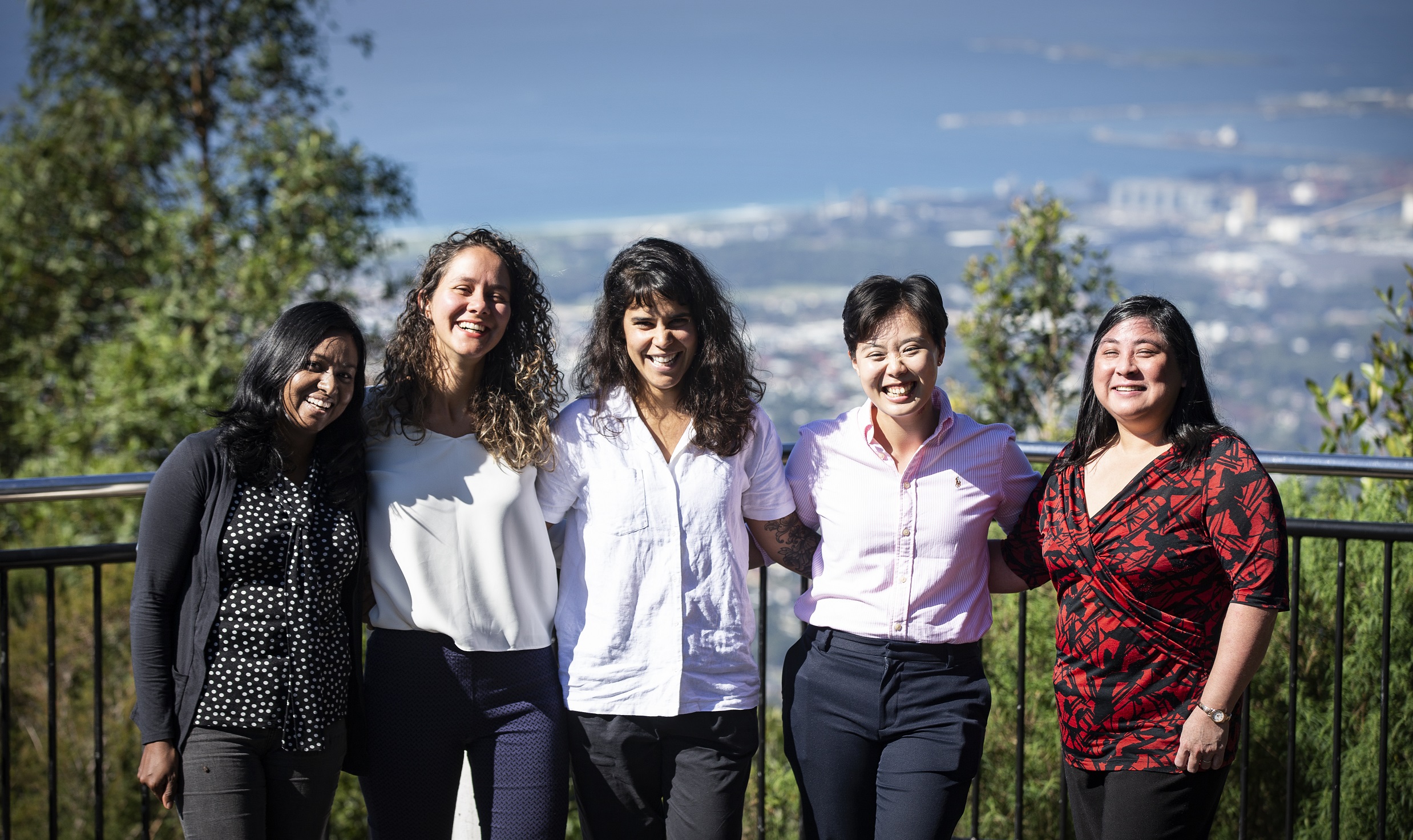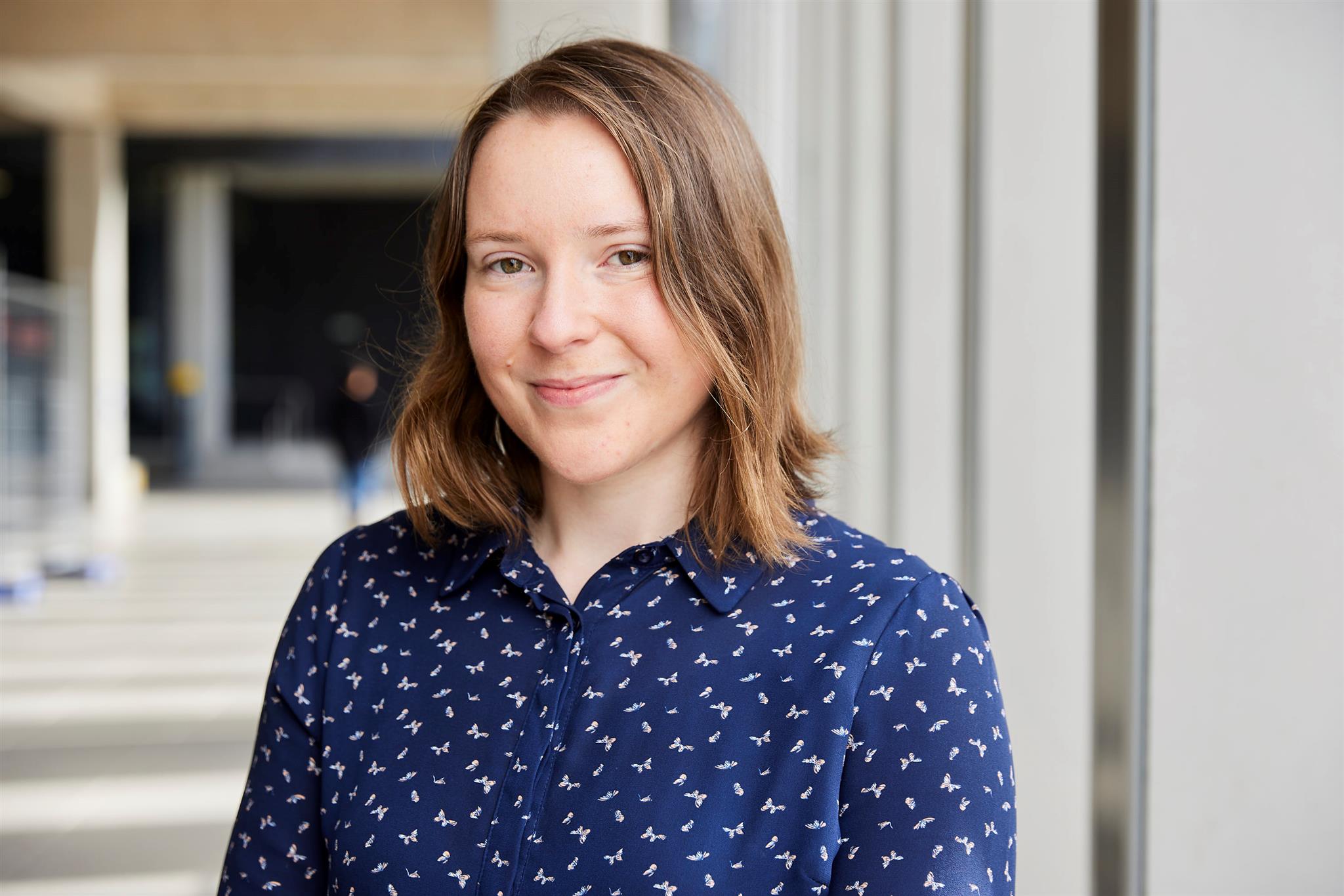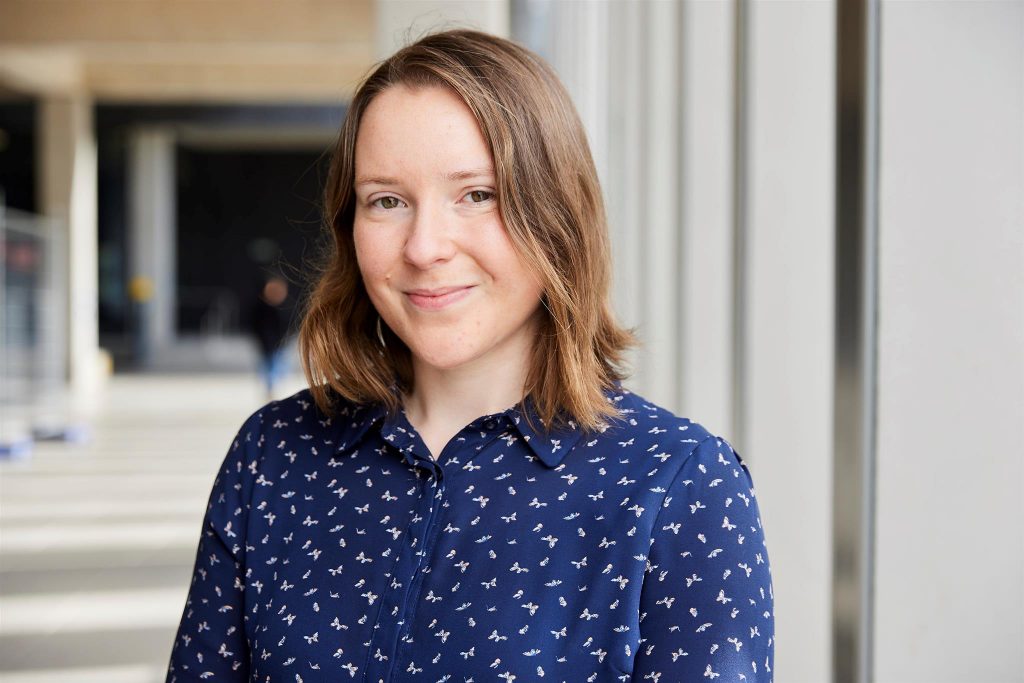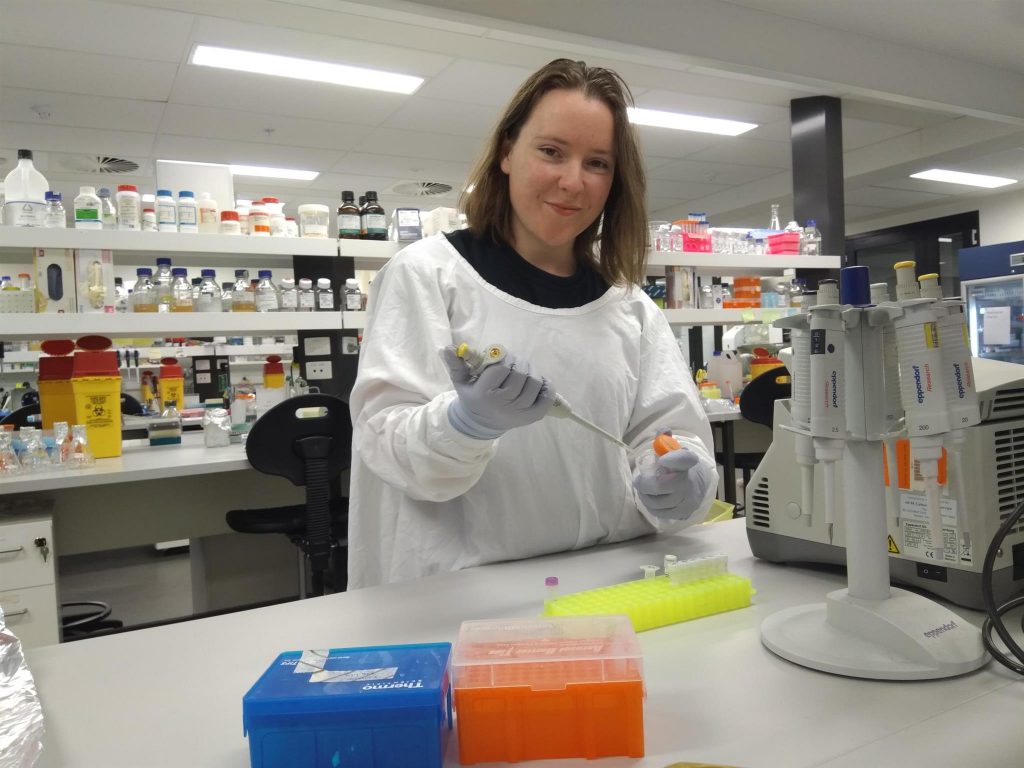By Peggy Schoenherr
The Women’s Research Engineers Network (WREN) is a recently launched network between Australia and Brazil formed by an all women committee consisting of five early-career researchers from the University of Wollongong (UOW) and two professors from the University of São Paulo. The network was established to support women in engineering throughout their academic careers by fostering international collaborations, which are closely linked to successful grants and promotions. By generating more opportunities for women to find these collaborations, the network is working to narrow the still present gender gap felt by women in later career stages. The first six months of the newly founded network has been financed through a Commonwealth grant from the Council on Australia Latin America Relations (COALAR).
We spoke with three founding members, Dr Mainã Portella Garcia (Research Fellow), Ms Grace Kennedy (Associate Research Fellow) and Dr Emily Yap (Research Engineer), about WREN and what they want to achieve with their network.
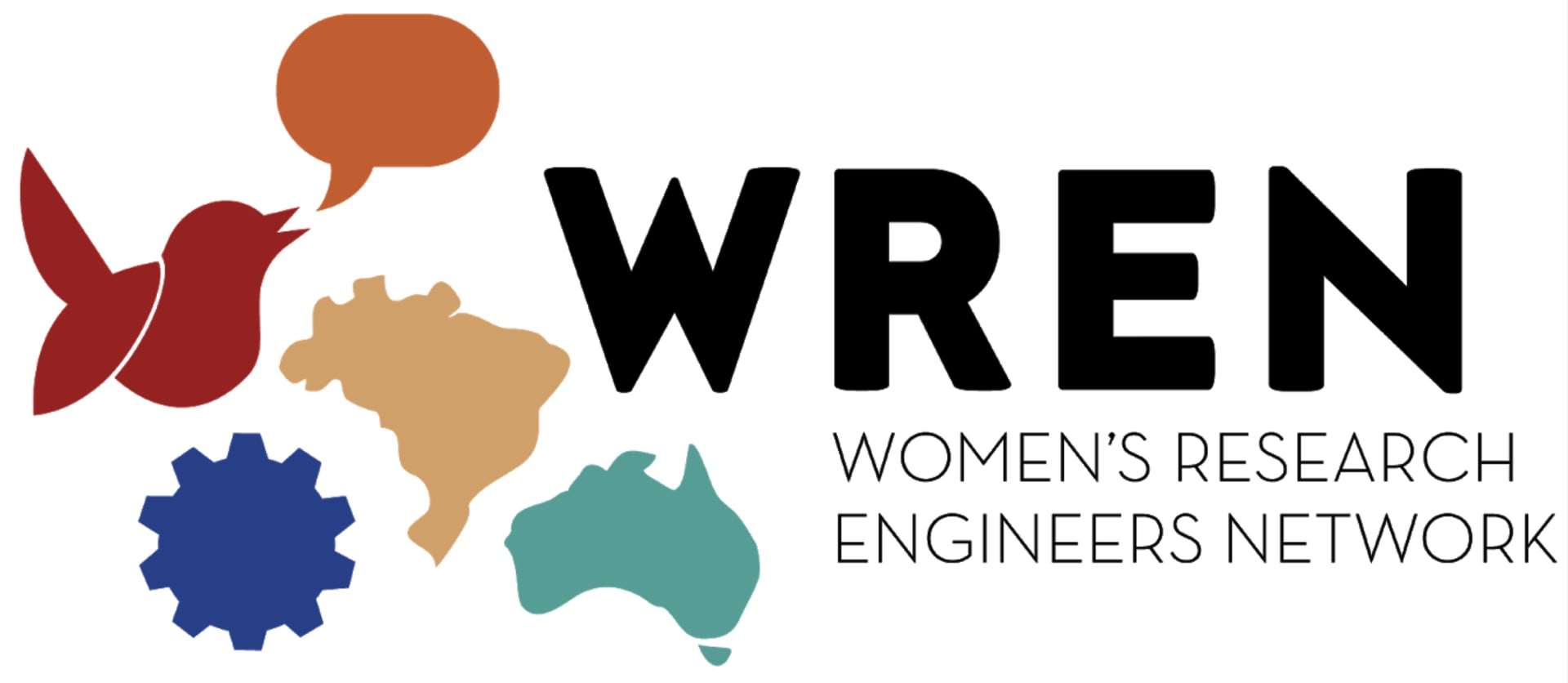
How did WREN start?
The idea for WREN started with Dr Marcella Bernardo and me (Dr Portella). We are both early-career researchers at the University of Wollongong and originally from Brazil. Both of us have struggled in forming international collaborations, especially with groups in Brazil, which mainly resulted from not being able to contact them due to a lack of online presence of these researchers. We realised that this was a problem not only for us but for other people from Australia as well. Thus, we decided to create a network between Australia and Brazil, which will act as a platform to connect people. The specific focus on women is a result of our experience as early-career engineers, and the existing gender gap throughout the career stages in engineering. So we decided to write a grant for the establishment of our network together with Emily, Grace and Dr. Apsara Jayasekara from Australia, and our Brazilian colleagues, Prof’s Janaina Mascarenhas and Vera Lucia Arantes from the University of Sao Paulo. Our grant application was supported by the deans and directors of various university faculties and offices from Australia and Brazil. The grant was accepted in April 2021 by the Council on Australia Latin American Relations (COALAR) that promotes bilateral Australian and Latin American projects and gave us the funds to start up our network.
What is WREN about?
Emily – The main goal of WREN is to create a network to encourage and support international collaborations between
women research engineers. This involves a number of online events to build connections and share knowledge and experiences between Brazil and Australia. To support the network, a website hub is being developed that anyone will be able to access to find researchers from different parts of the world by simply searching for specific keywords. You could for example search for ‘artificial intelligence’ and find academics linked to that topic and ways to contact them. Additionally, we would like to include a forum where you could ask questions about specific technologies, seek help when writing grants or discuss other academic topics.
Grace – We want to make WREN an environment to support women to be more involved in attaining grants, advancing their careers and having their voices heard by sharing ideas and knowledge. WREN was started from a COALAR special fund for the economic recovery from COVID-19. WREN is about generating opportunities and helping each other, whilst striving towards gender equity. This should be achieved by including the voices of diverse groups of people.
Mainã – WREN is about putting women in decision-making positions. It enables us to be heard and amplifies our voice to achieve more things than one researcher could do. I believe that our platform will benefit not only early-career but also mid-career researchers.
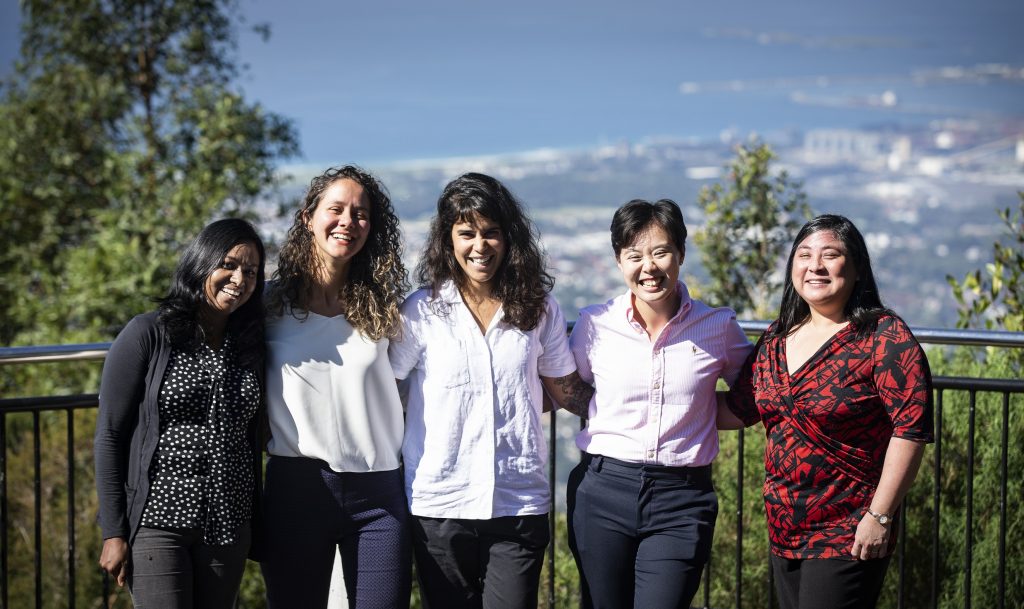
Women of WREN from the University of Wollongong: pictured left to right: Dr Apsara Jayasekara, Dr Mainã Portella Garcia, Dr Marcella Bernardo Papini, Dr Emily Yap, Ms Grace Kennedy. Photograph by Paul Jones.
Besides being a network to form new collaborations, what else do you want WREN to stand for?
Our network is also there to empower women in promoting themselves because they are often less inclined to ‘blow their trumpets’ as well as men. If we highlight successful women as role models others can follow in their footsteps, and learn what makes a career or grant application successful or possible a pitfall. Seeing others in a similar position succeed may also improve other’s confidence in applying for a grant or position.
We also want the website to be a sharing portal, to increase transparency and to provide the same accessibility for everyone. It can for example be hard for early-career researchers to get access to examples of successful grant applications and learn from them because people tend to be cautious in sharing them. Accessibility and likelihood of success often depends on who you know or who supports you. We, however, want to generate an environment where everyone has the same opportunity. We will try to set an example by making our COALAR grant for WREN available on the new website including all questions.
What are your plans for the six months of the grant and after?
The six-month seed funding will help us to set up our network and build momentum. Beyond creating the website, we have organised monthly events to connect with people and spread our message. I think we are already reaching a good point where we can say: “The network is here for you! Let’s find others to collaborate with and work on new ideas! Get in contact with us and let’s get going!”
A very important part is the creation and launch of our website in late September when our grant is ending. This is not the end of WREN, but just the beginning! The website will be the main platform for WREN going forward. We are planning to create a committee out of current members as well as equally passionate people to continue this new platform. The committee will be responsible for planning future events and bringing people together. We already have a few ideas on how to resource the continuation of WREN but we are always open for more ideas.
Is WREN only for women in engineering?
No! Even though our name specifically mentions women and engineers, anyone can join the events and be a member of our network. Our network is free to join, and open to all supportive allies or people that have an interest in gender equity in engineering. At the moment our focus is on women as they are underrepresented especially in engineering, however our overarching goal is to generate a new sort of transparency by sharing information. Nevertheless, in the end, we not only want to connect Brazilian and Australian women in engineering, but everyone around the world should be able to benefit from our website and share in the knowledge held within the network.
How can I contact WREN as an individual or an organisation?
If you want to find out more about us, get involved or support the network, go to our website www.aubrwren.com or write us an email at info@aubrwren.com. Even though our website is still under development, you can subscribe to our mailing list to stay in touch with our events until the release of the full website. We can also be found on most social media platforms including by searching for AUBRWREN. To hear more about our mission and vision of the network, watch our video on the WREN YouTube channel.
Another good way to get in contact with us is through our events. They will give you more information about the network and our initiatives. Come along and join us!
Is there anything else you would like to mention?
The success of our network depends on the people within it, and the spreading of our message to the outside of the network. WREN belongs to those within the network, so if you have a topic or idea that you think is worth discussing, contact us and we will help you promote it! We’d also be delighted to work together and support the initiatives of other groups with similar goals.
Follow WREN to get in contact or stay updated on Twitter, Instagram, Facebook and Youtube, or email info@aubrwren.com.

